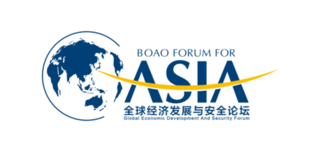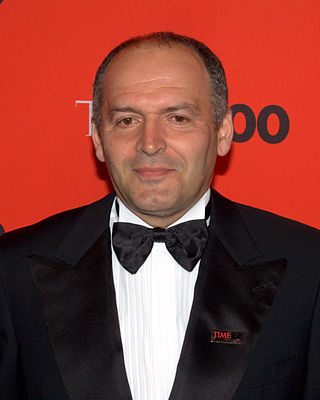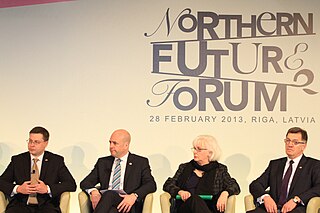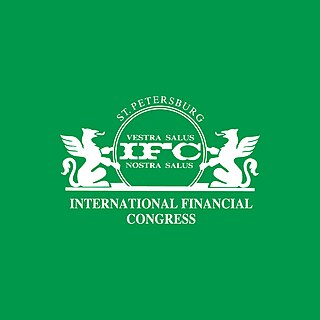Related Research Articles

The Group of Eight (G8) was an inter-governmental political forum from 1997 until 2014. It had formed from incorporating Russia into the Group of Seven, or G7, and returned to its previous name after Russia was expelled in 2014.

Asia-Pacific Economic Cooperation is an inter-governmental forum for 21 member economies in the Pacific Rim that promotes free trade throughout the Asia-Pacific region. Following the success of ASEAN's series of post-ministerial conferences launched in the mid-1980s, APEC started in 1989, in response to the growing interdependence of Asia-Pacific economies and the advent of regional trade blocs in other parts of the world; it aimed to establish new markets for agricultural products and raw materials beyond Europe. Headquartered in Singapore, APEC is recognized as one of the highest-level multilateral blocs and oldest forums in the Asia-Pacific region, and exerts significant global influence.

Crimea is a peninsula in Eastern Europe, on the northern coast of the Black Sea, almost entirely surrounded by the Black Sea and the smaller Sea of Azov. The Isthmus of Perekop connects the peninsula to Kherson Oblast in mainland Ukraine. To the east, the Crimean Bridge, constructed in 2018, spans the Strait of Kerch, linking the peninsula with Krasnodar Krai in Russia. The Arabat Spit, located to the northeast, is a narrow strip of land that separates the Syvash lagoons from the Sea of Azov. Across the Black Sea to the west lies Romania and to the south is Turkey. The largest city is Sevastopol. The region has a population of 2.4 million, and has been under Russian occupation since 2014.

The World Economic Forum (WEF) is an international advocacy non-governmental organization and think tank, based in Cologny, Canton of Geneva, Switzerland. It was founded on 24 January 1971 by German engineer Klaus Schwab.

The Boao Forum for Asia, initiated by 25 Asian countries and Australia, is a non-profit organisation that hosts high-level forums for leaders from government, business and academia in Asia and other continents to share their vision on the most pressing issues in this region and the world at large. BFA is modelled on the World Economic Forum held annually in Davos, Switzerland. Its fixed address is in Bo'ao, Hainan province, China, although the Secretariat is based in Beijing. The forum, sometimes known as the “Asian Davos”, takes its name from the town of Boao, located in China's southern Hainan province, which has been the permanent venue for its annual conference since 2002.

The Group of Seven (G7) is an intergovernmental political and economic forum consisting of Canada, France, Germany, Italy, Japan, the United Kingdom and the United States; additionally, the European Union (EU) is a "non-enumerated member". It is organized around shared values of pluralism, liberal democracy, and representative government. G7 members are the major IMF advanced economies.

Victor Mykhailovych Pinchuk is a Ukrainian businessman and oligarch. As of January 2016, Forbes magazine ranked him as 1,250th on the list of wealthiest people in the world, with a fortune of US$1.44 billion.
The Russia Forum was an annual event held in Moscow, hosted by Troika Dialog from 2008 to 2013. From 2012, The Russia Forum was jointly presented by Sberbank of Russia and Troika Dialog.

The St. Petersburg International Economic Forum is an annual Russian business event for the economic sector, which has been held in St. Petersburg since 1997, and under the auspices of the Russian President since 2006. Each year, more than 10,000 people from over 120 different countries take part. The Forum brings together the chief executives of major Russian and international companies, heads of state, political leaders, prime ministers, deputy prime ministers, departmental ministers, and governors.

Alfred Nobel University, Ukraine is a higher educational institution with the IV level of accreditation.
Horasis is an independent, international think tank, headquartered in Zurich, Switzerland. Founded in 2005, by Frank-Jürgen Richter, former director of the World Economic Forum, Horasis is committed to fostering innovation and promoting the sustainable development of emerging markets. The annual Horasis Global Meeting in Cascais, Portugal, is a gathering of business people with government officials, scientists and intellectuals centered on issues concerning corporations and societies.

The World Resources Forum (WRF) is a non-profit organisation for sharing knowledge about the economic, political, social and environmental implications of global resource use. WRF promotes resource productivity among researchers, policymakers, business, NGOs and the public. In addition to organizing international and regional conferences, the WRF Secretariat coordinates multistakeholder dialogue projects, amongst others the Sustainable Recycling Initiative (SRI) as well as the H2020 projects Towards a World Forum on Raw Materials (FORAM), and CEWASTE. The WRF contributes to other EC-projects and projects with the German development organisation GiZ, UNEP and UNIDO.
Open Innovations is an annual international forum that focuses on new technologies and perspectives of the international cooperation on innovations.

Northern Future Forum is an annual, informal meeting of prime ministers, policy innovators, entrepreneurs and business leaders from the 9 nations of Denmark, Estonia, Finland, Iceland, Latvia, Lithuania, Norway, Sweden and the United Kingdom. Initially referred to as the UK Nordic Baltic Summit, the name Northern Future Forum was introduced at the second meeting in Stockholm, 2012. The group had a period of abeyance since the Stavanger meeting in 2016 was postponed following the outcome of the 2016 United Kingdom European Union membership referendum, and David Cameron subsequently stepping down as UK prime minister, to be succeeded by Theresa May. The summit was reconvened in October 2018 in Oslo.

KAZANSUMMIT is one of the leading international economic events of the Russian Federation and the Organization of Islamic Cooperation (OIC). From the first day of its existence, the Summit has been held under the patronage of the President of the Republic of Tatarstan, Rustam Minnikhanov. Since 2009, KazanSummit is held annually and strongly supported by the Federation Council of the Federal Assembly of the Russian Federation and the Government of the Republic of Tatarstan. Top international investment conference remains the main and unique platform for cooperation between the Russian Federation and the OIC member states.

The Autonomous Republic of Crimea is an administrative division of Ukraine encompassing most of Crimea that was unilaterally annexed by Russia in 2014. The Autonomous Republic of Crimea occupies most of the peninsula, while the City of Sevastopol occupies the rest.

The Republic of Crimea is a republic of Russia, comprising most of the Crimean Peninsula, but excluding Sevastopol. Its territory corresponds to the pre-2023 territory of the Autonomous Republic of Crimea, a de jure subdivision of Ukraine. Russia occupied and annexed the peninsula in 2014, although the annexation remains internationally unrecognized.

The International Financial Congress (IFC) was an annual conference hosted in Saint Petersburg in Russia dedicated to the finance industry. The event brought together heads of central and commercial banks, financial institutions, international financial organizations and financial regulatory authorities, as well as renowned experts from around the world and figures from academia and business. It ran from 1991 until 2019.
The relationship between Azerbaijan and Organization of the Black Sea Economic Cooperation dates back to 1992 when Azerbaijan signed Istanbul Summit Declaration and the Bosphorus Statement.
Yalta European Strategy is an international annual conference of leaders from politics, business, mass media, civil society and the expert community that has been held in Ukraine since 2004. The forum gathers more than 350 participans from over 50 countries around the world.
References
- ↑ "About the Forum" . Retrieved 19 April 2018.
- ↑ "YIEF Foundation" . Retrieved 19 April 2018.
- ↑ "4th Yalta International Economic Forum Opens". Prensa Latina. Retrieved 20 June 2018.